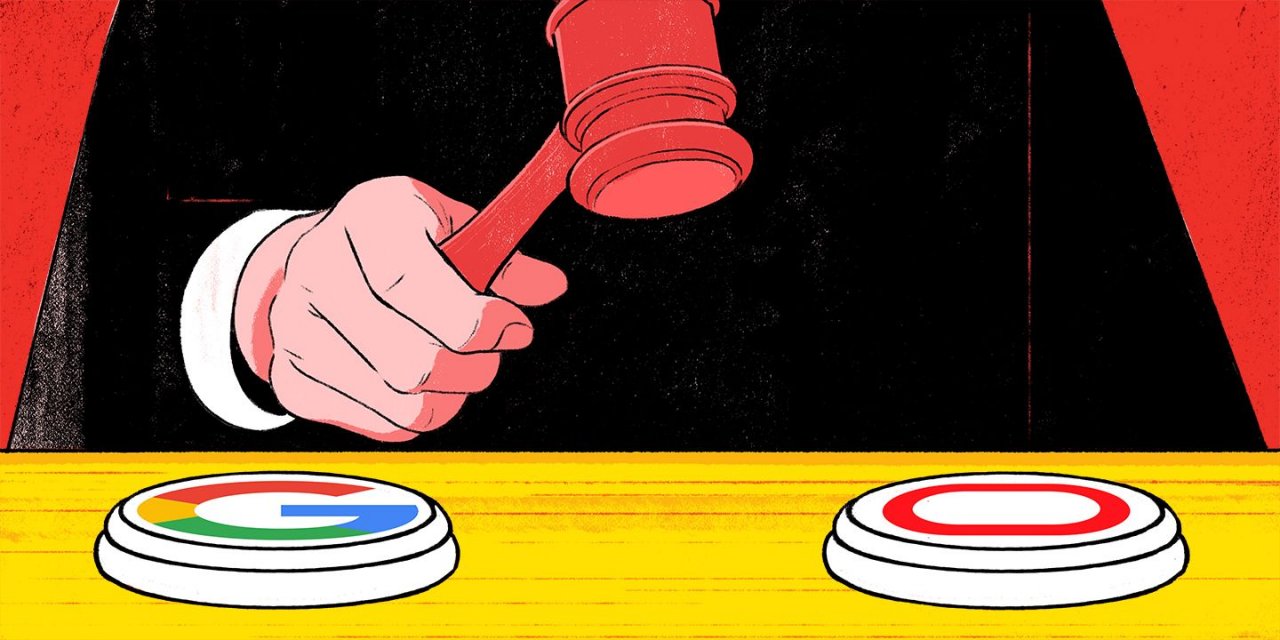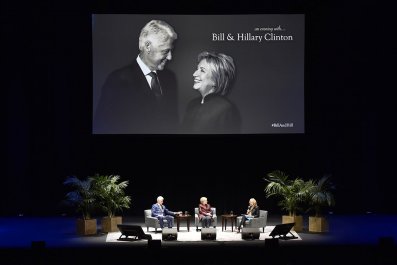Google calls it the "copyright case of the decade."
"It" is the $9 billion copyright infringement suit Oracle filed against the search giant nearly 10 years ago. Oracle brought the case in 2010 after Google incorporated 11,500 lines of Oracle's Java code into Google's Android platform for smartphones and tablets. Android has since become the world's most popular operating system, running on more than 2.5 billion devices.
Google won twice at the U.S. District Court level. But each time, a federal appeals court overturned the verdict, ruling for Oracle. Now, Google is begging the Supreme Court to hear the case, and so are the 175 companies, nonprofits and individuals who have signed 15 friend-of-the-court briefs supporting Google's plea.
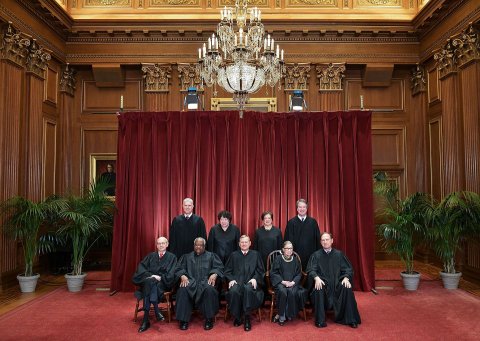
Here's the pressing issue: How much protection do copyright laws give to application program interfaces, or APIs? That might sound arcane, but these interfaces are omnipresent in software today. They form the junctions between all the different software applications developed by various companies and independent developers that must seamlessly interact to work right.
All the apps that sit on our smartphones—like Pandora or Uber—use interfaces to communicate with our phones' operating systems (Apple iOS for iPhones, for example). If the owner of a platform can claim, through copyright, to own those interfaces, it can limit innovation and competition, Google contends. Not only can it determine who gets to write software on its own platform, but, as we'll see, it may even be able to prevent rival platforms from ever being written. The Harvard Journal of Law and Technology considers the case so consequential that it devoted an entire 360-page "special issue" to it last year.
"If the appeals court's rulings stand, it's likely to lead to entrenching dominant firms in software industries," says Randy Stutz, an attorney with the American Antitrust Institute, which supports Google in the dispute.
Oracle, on the other hand, says the case is cut-and-dried. Its basic argument: Google negotiated to take a license for the Java code, it wasn't able to reach terms, and then it used portions of the code anyway. (And that's all true.) Now, it's time to pay the piper.
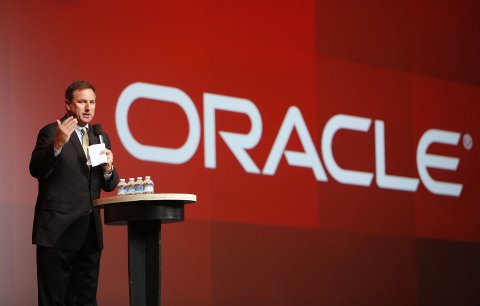
"Before Android," Oracle's lawyers write in their brief to the Supreme Court, "every company that wanted to use the Java platform took a commercial license...including smartphone manufacturers BlackBerry, Nokia and Danger."
Oracle claims that, if not for Android, Oracle's own Java software could have become a major smartphone platform. (Although Java was written by Sun Microsystems, Oracle acquired Sun in 2010, shortly before bringing this suit.) Oracle's lawyers mock the notion that the rulings in its favor will spawn any dire consequences. Despite Google's "sky-is-falling" arguments, they write, the software industry did not crash in the wake of May 2014 or March 2018, when the U.S. Court of Appeals for the Federal Circuit issued the two key rulings that Google seeks to reverse.
In fact, Oracle has enjoyed fervent support from its own friend-of-the-court briefs, including one from BSA, the Software Alliance, which counts companies like Adobe, Apple and IBM among its members.
Remarkably, for a case about software interfaces, the key Supreme Court precedent was decided in 1879. Obviously, that suit didn't involve a smartphone platform, but it did define the limits of copyright and explain how a copyright differs from a patent. In that dispute, Charles Selden had authored and copyrighted a book laying out a method of bookkeeping. The book included some blank forms that could be used to implement the system. Later, W.C.M. Baker began marketing his own set of forms to implement Selden's method that were very similar to those in Selden's book.
Selden's widow sued Baker for copyright infringement—and lost. Basically, Justice Joseph Bradley explained in the opinion, she was trying to use copyright to protect the ideas contained in Selden's book. He explained that, while a patent can protect an idea, a copyright protects only expression—in this case, the particular words Selden used to describe his bookkeeping method. "The copyright…cannot give to the author an exclusive right to the methods of operation which he propounds," the Supreme Court's decision said. (Selden had not patented his bookkeeping method.) Since Selden had no monopoly on his method, he had no monopoly on the forms needed to carry out that method.
Congress later wrote the Court's Baker v. Selden ruling into the federal copyright statute, specifying that a copyright cannot "extend to any idea, procedure, process, system, [or] method of operation," even if that idea is "described" in copyrighted work.
To put it in modern-day terms: Even if Marie Kondo copyrights a book on organizing, she can't sue you for rolling your clothes.
That's part of the essential background against which, 140 years later, Oracle's dispute with Google will be judged. (Incidentally, Oracle did own patents on aspects of Java, and its suit against Google originally included patent claims. But a jury threw those out in 2012, and Oracle did not appeal. So Oracle's case now stands or falls on its copyright claims.)
To decide Oracle's case, the Supreme Court will have to look closely at exactly what an application program interface is. Such an interface is composed of two key parts. One part is a shorthand label, in effect, that a software developer can write into a program when he wants a certain task performed. That label will call up a much longer, prewritten module of code that will actually supply the step-by-step instructions for accomplishing a task, which the developer won't have to write himself. The label is known as a "declaration," while the longer module it summons into operation is the "implementing code."
"[Declarations] are not computer programs themselves," says a brief filed on behalf of 78 eminent computer scientists who support Google's position in the case. "[They] merely describe what functional tasks a computer program will perform without specifying how it does so." (Signatories to this brief include Steve Wozniak, who co-founded Apple with Steve Jobs; Internet pioneer Vint Cerf, who now works at Google; and Ronald Rivest, who co-invented the RSA public-key cryptosystem.)
Significantly, Google copied only a small percentage of Java code—and only declarations. Google Android is composed of 168 packages of software. For 37 of those packages, it copied Java's declarations. But it rewrote from scratch the underlying "implementing code" for each of those tasks. As a result, the copied code makes up only about 3 percent of the 37 disputed interfaces and "less than 0.1 percent of the 15 million relevant lines of code in Android," according to Google's brief.
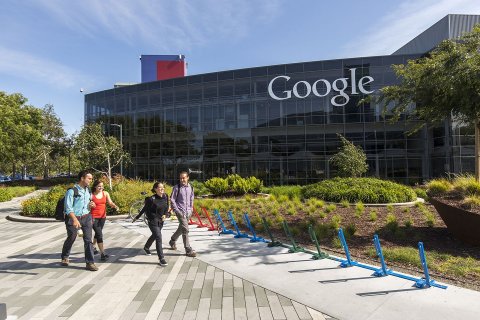
Google left the declarations unaltered for a good reason, it claims. By the time the first commercial Android device came out in late 2008, Apple iPhones had been on the market for more than a year. Google hoped the Android platform would eventually rival Apple's then-dominant iOS platform. By leaving the Java declarations intact, it enabled millions of independent developers who had already invested time in learning the Java programming language—one of the leading programming languages in the world—to build apps for the Android platform. To have rewritten the declarations would have crippled Android's ability to compete as a practical matter.
"Imagine you are trying to come to market with a new platform," says the American Antitrust Institute's Stutz. "You would not only have to persuade consumers to switch, but you'd have to persuade developers to learn an entirely new vocabulary for the new platform."
What Google did, according to the computer scientists, "is a long-standing, ubiquitous practice that has been essential to realizing fundamental advances in computing" and "has spurred historic innovation across the software industry for decades."
Google, now part of the Alphabet consortium, claims that the 37 Java declarations it copied are, in effect, just non-expressive tools that are not copyrightable at all. They just activate the implementing code. Google compares the declarations to a computer keyboard. When you tap the A key, it mechanically activates the underlying word-processing program—Microsoft Word, say—that then sees to it that a letter a pops up on your screen. While Microsoft Word is copyrightable, the keyboard is not.
Alternatively, Google has a fallback argument. Even if the declarations are copyrightable, it contends, its actions were still justified under the judge-made "fair use" doctrine, which sometimes excuses copying that promotes creative expression or other societal goals. (Under this doctrine, for instance, book or film critics can quote short passages from the copyrighted works in their reviews, which themselves then constitute valuable new copyrightable works.)
Google won both arguments in the U.S. District Court, but on each occasion the Federal Circuit court came to Oracle's rescue. First, U.S. District Judge William Alsup of the Northern District of California ruled in 2012 that the Java declarations were not copyrightable. The Federal Circuit court reversed that in 2014, sending the case back to a jury to consider the fair use question.
Then, in 2016, the jury ruled for Google on its fair use defense. The Federal Circuit then overturned that verdict too, in 2018, ruling for Oracle and ordering the case sent back to another jury for calculation of damages.
Whether the Supreme Court takes the case might hinge on the recommendation of U.S. Solicitor General Noel Francisco. On April 29, the Supreme Court asked him for his views, and his office is expected to provide them in either mid-September or early December. Lawyers for Oracle and Google are expected to discuss the case with his office in June, in separate meetings, according to a source familiar with the situation.
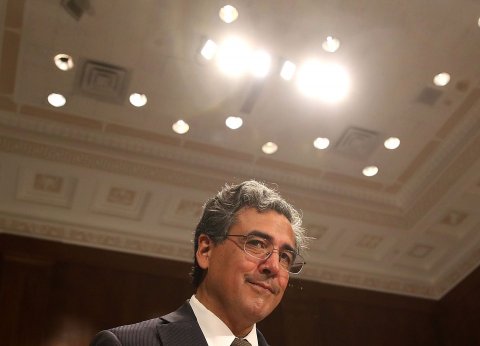
Google tried once before, in 2015, to get the Supreme Court to hear this case but without success. That was after the Federal Circuit's first ruling—that the Java declarations were copyrightable—but before the fair use question had been decided. At that point, the government opposed the Supreme Court taking the case. It did so in part because it agreed with the appeals court that the Java declarations were copyrightable. At the same time, it wrote that "the important concerns" Google was raising—about the functional nature of software interfaces and their importance to competition—were "better addressed" through application of the fair use doctrine. The fact that the jury had not yet ruled on fair use was another reason the government urged the Supreme Court to not hear the case at that time.
Now that the fair use question has been decided, the time might finally be right for the Supreme Court to weigh in. The stakes are high.
"Ultimately, it's all about competition," says Jonathan Band, who co-wrote a friend-of-the-court brief supporting Google for the Computer & Communications Industry Association. "We want to have as much competition as possible in the computer industry."
He admits that it may seem odd that Google—one of Big Tech's behemoths, along with Facebook and Amazon, whose market power concerns people—is cast as the champion of competition. "But to the extent this case is about tech incumbents having too much power," he says, "the Federal Circuit's rulings would make them even more entrenched."



